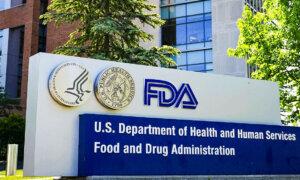Eye Drops Recalled Over Potential Fungal Contamination
A nasal solution product has recently been recalled from stores.
An eye drop that may be contaminated with fungus is being removed from the market across the country due to health risks it poses to consumers.
Individuals experiencing dry eye symptoms use this product for temporary relief from irritation and burning sensations.
The notice states, “Alcon investigated a consumer report of foreign material found inside a sealed single-use vial and identified the substance as fungal.”
“Fungal contamination in an ophthalmic product can potentially lead to eye infections,” it continues. “Such infections may threaten vision, and in rare instances, could be life-threatening for immunocompromised individuals.”
The affected products were distributed through physical retail outlets and online sales.
Alcon has urged consumers who purchased the recalled eye drops to “cease use immediately.” Consumers may return the product to the point of sale for either a replacement or a refund.
The company also recommended that consumers consult a healthcare provider if they experience any discomfort following the use of the product. Alcon stated that it has not received any reports of adverse effects related to the recalled item.
Retailers and distributors holding stock of the impacted product were instructed to dispose of it.
The recalled eye drops can be identified by their lot number 10101, featuring a pink and green carton design, with an expiration date of September 2025, and labeling that includes “ULTRA PF” and “Systane.” Each package contains 25 vials. Alcon is notifying distributors and customers regarding the contaminated product.
The FDA advises that some ingredients, such as silver sulfate or methylsulfonylmethane, are not suitable for eye drop formulations, urging consumers to verify product labels to ensure these components are not included.
Additionally, consumers are encouraged to “Wash your hands with soap and water before administering eye drops, and avoid touching the tip of the bottle against your hands, eyes, clothing, or any surfaces to prevent contamination,” according to the agency.
Nasal Solution Recall
On Dec. 20, Pennsylvania-based Endo Inc. announced a voluntary recall affecting several lots of Adrenalin Chloride Solution (EPINEPHrine nasal solution).
The affected items were packaged in 30-milliliter vials and distributed across the nation to wholesale entities from Oct. 10, 2023, to Dec. 11, 2024, with expiration dates varying from January 2025 to March 2026.
According to the notice, “This product, which predates the 1938 Federal Food, Drug & Cosmetic Act, was never submitted for FDA approval and is therefore classified as an unapproved drug. Its safety and efficacy have not been verified, warranting this recall.”
The FDA further noted that the product’s misleading label closely resembles another product created by the same manufacturer, Adrenalin (epinephrine injection), which has received FDA approval.
The similarity in labeling complicates the task of distinguishing between the two products, “which could result in potential administration errors,” and poses a risk for severe health consequences, the notice warns.
“There is a significant risk that the intravenous administration of the nasal product will result in patients receiving incorrect doses of epinephrine in emergency scenarios for serious, life-threatening conditions such as anaphylaxis, blood pressure support, and cardiac arrest,” the notice warns.
The products were intended for use by individuals aged 5 and older. The FDA stated that the product made “unproven claims” regarding its efficacy in opening air passages and alleviating nasal congestion.



